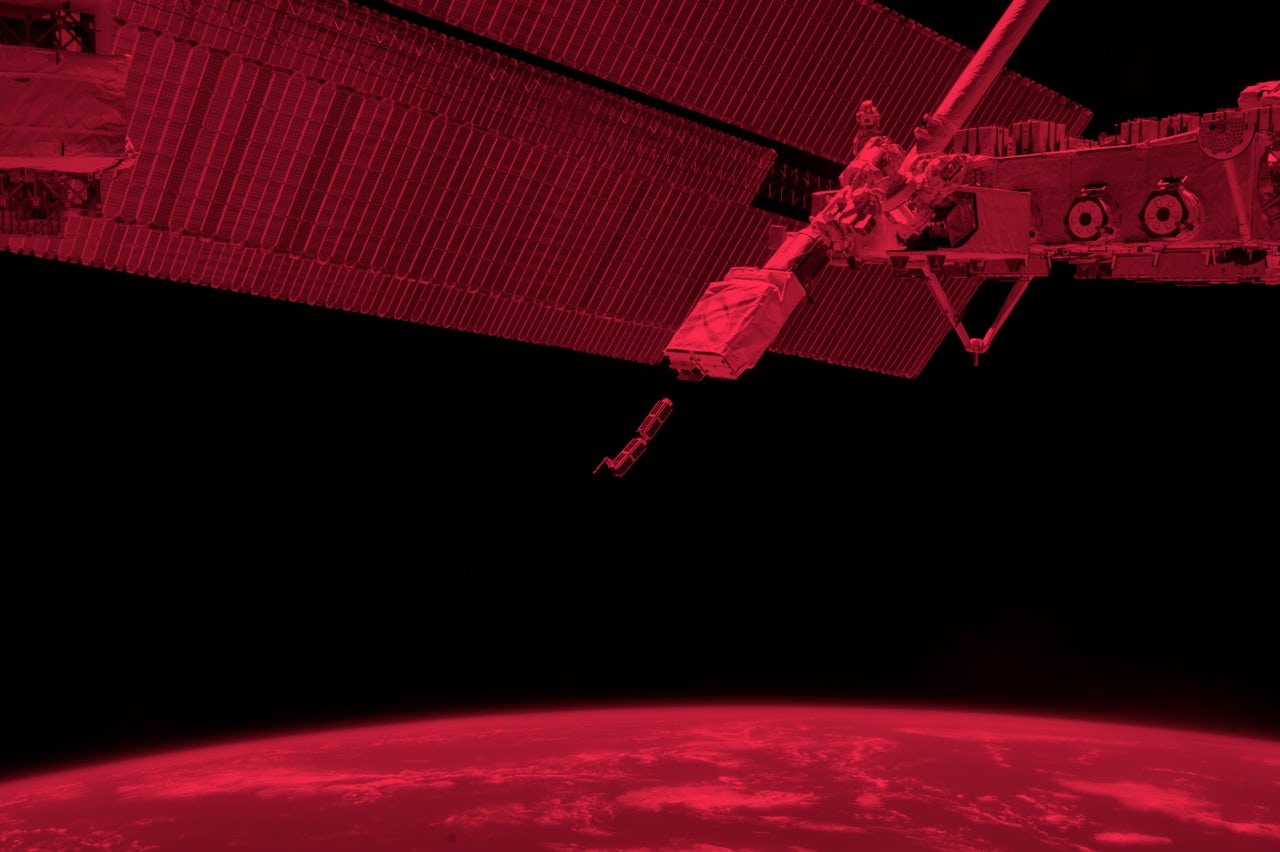The most concerning new initiative from Facebook may not be Facebook for Dating, but Facebook Satellites.
As first reported yesterday by Mark Harris for IEEE Spectrum, there’s some evidence that Facebook formed a subsidiary satellite company called “PointView” on the down low (the companies seem to share a number of assets, including staff and land). A filing by this corporation to the FCC, published by Harris, reveals that the company wants to launch satellites in early 2019 to provide “fixed and mobile broadband access service” to “unserved and underserved areas throughout the world.”
If implemented, a satellite internet service would potentially give Facebook unprecedented access to user data in some of the most vulnerable regions in the world. Facebook is already facing a mountain of unsolved issues related to privacy and hate speech moderation on its services; by cutting out the middleman and providing internet services directly, Facebook would take a major step toward maximizing its profits as an internet provider and gaining direct access to users without telecom middlemen.
Since 2015, Facebook’s Internet.org initiative under the Free Basics program has involved partnering with telecom companies in over sixty countries that are more likely to have a cost barrier to internet access, such that using Facebook wouldn't count against any data users paid for. The program helped the company glean millions more users, and likely profit by advertising to those users.
It’s very possible that Facebook’s satellite internet services would target countries that have poor internet infrastructure on the ground. Since Internet.org has targeted countries that have the infrastructure, but at a high price to users, there probably wouldn’t be complete overlap between the services.
But Internet.org has not exactly been smooth sailing for Facebook, nor has it been perfect for its users. As reported by The Outline, the Internet.org initiative has quietly ended in multiple countries, including Myanmar, where too-lightly moderated hate speech has played a role in worsening an ethnic cleansing crisis within the nation. People in Bolivia, Papua New Guinea, Trinidad and Tobago, Republic of Congo, Anguilla, El Salvador, and Saint Lucia have also seen an end to their free Facebook access.
Groups such as the Electronic Frontier Foundation (EFF) have vocally criticized Internet.org on the grounds of being non-neutral. In other words, by providing preferential access to its own site over others, Facebook limits people’s ability and incentive to access information freely. In contrast, similar initiatives such as Wikipedia Zero did not involve monetary exchanges with foreign telecom companies. Wikipedia Zero ended in February for financial reasons. The telecom arrangements through Internet.org also haven’t involved encrypting user data.
Granted, Internet.org was ended for different reasons across these different countries, according to TechCrunch. In Myanmar, Facebook claims that there wasn't enough access to free SIM cards. In El Salvador, Facebook wasn’t profiting enough from the arrangement. In India (back in 2016), national regulations shut Facebook out of the market.
Considering these financial difficulties, it makes sense that Facebook would want to take a more hands-on approach to internet services. Also, uh, remember that time a SpaceX rocket blew up Facebook’s $85 million satellite? It’s understandable if Zuck has some trust issues with other commercial space companies after that episode.
Still, AI-powered hate speech moderation is also far from developed in the non-English-speaking countries where Facebook is looking to expand its market—even Zuckerberg announced plans to hire more hate speech moderators who speak in languages like Burmese. Plus, if Facebook quietly ended its satellite internet services in certain countries as it did with Internet.org, it may still have control over certain frequency ranges and keep competitors out of the market.
And, well, it’s not exactly promising that Facebook’s first possible step toward satellite internet was forming a shell company and filing to the FCC in secret.

